Introduction
Universidad Isabel I de Castilla (Isabel I University) is a private university located in the autonomous region of Castile and León, Spain. The school is named in honor of Queen Isabel I of Castile, the founder of the modern Spanish state.
Overview
Student size: The specific number of students is not clearly disclosed, but judging from the number of scholarships it provides and the students covered, the scale is relatively small, and 500 students are provided with scholarships in 2022-2023.
Campus distribution: The main campus is located in Burgos, in the building of the former mayor of the seminary, in the upper part of the city, about 500 meters from the cathedral, covering an area of 6,534m² distributed on five floors and side buildings; the Valladolid campus is located in paseo de filipinos 3, next to Plaza Colon and the train station.
History and establishment time
The school was founded in 2008 and was approved by the Parliament and the Speaker of Castile and León in 2011 3/2011 The Act was inaugurated, and it was officially authorized by the Kingdom of Spain to register official degree courses at the bachelor's and master's levels and doctoral levels.
School Strength
Disciplines and majors: There are schools of law and economics, natural sciences and technology, criminology, health sciences, people and social sciences, and linguistics. It offers 12 bachelor's degrees, 20 master's degrees, and 7 research projects. It also co-organizes degree courses with many colleges and educational institutions.
Teaching mode: Teaching in a distance and hybrid way, making full use of information technology and communication technology, so that students have the opportunity to integrate theoretical knowledge in learning into their daily professional life, and use practical experience in professional life to better understand complex theoretical learning content.
Teaching staff: Although the detailed data of specific teachers has not been found, as a regular university and the many majors and courses it offers, it has a group of teachers with professional knowledge and teaching experience to ensure the quality of teaching and academic level.
International cooperation: Actively participate in international education exchanges, and have certain cooperation with universities or educational institutions in other countries and regions to provide students with a broader learning and exchange platform and enhance the internationalization level of the school.
Nature of institution
Private university.
Educational philosophy
Focus on student-centeredness, let students actively participate in the educational community, emphasize cooperation and communication between students and teachers, and jointly build a knowledge system. It is committed to cultivating professional talents who can adapt to the needs of the modern labor market, so that students can better combine theory with practice while learning professional knowledge, and improve their comprehensive quality and competitiveness.
Key laboratories and disciplines
Key laboratories: No clear key laboratories were found, but the school has teaching and research facilities such as the i+d+i building to provide support for students and teachers to carry out research and practical activities.
Key disciplines: Law, economics, natural sciences, health sciences and other disciplines are the key development disciplines of the school. Judging from the colleges it has established and the degree courses it offers, these disciplines have certain resource inputs and results in teaching and research.
Faculty
There are schools of law and economics, schools of natural sciences and technology, schools of criminology, schools of health sciences, schools of people and social sciences, and schools of linguistics.
Ranking
In 2021, Forbes ranked the university as Spain's 20 One of the best universities in the world.
Expenses
No detailed cost information for this school was found. It is recommended to visit the school's official website or consult the school's admissions office to obtain accurate tuition and other related cost information.
Campus Environment
Campus Facilities: The buildings of the Burgos campus have a certain historical and cultural heritage, and the former mayor's building of the seminary where it is located adds a unique atmosphere to the campus. The campus is equipped with central service facilities such as teaching, administration, library, teacher work area, classrooms, and computer services, providing convenient learning and working conditions for students and teachers. In addition, the Valladolid campus has a superior geographical location, adjacent to the Colon Square and the railway station, and convenient transportation.
Campus Culture: As a university with a certain historical heritage and cultural connotation, it focuses on creating a positive, open and inclusive campus cultural atmosphere, encourages students to participate in various academic, cultural and social activities, and cultivates students' teamwork spirit, innovation ability and social responsibility.
-
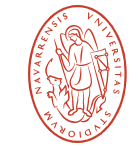
University of Navarra
-
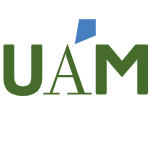
Autonomous University of Madrid
-

Polytechnic University of Catalonia
-

CEU University of San Pablo
-
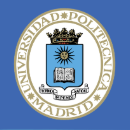
Technical University of Madrid
-

University of Lleida
-
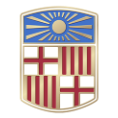
University of Barcelona
-

University of Oviedo
-

University of Valladolid
-
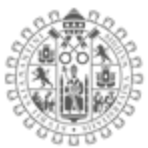
University of Salamanca
-

Mesoamerican University
-

Istmo University
-

Mariano Galvez University of Guatemala
-

Regional University of Guatemala
-

Galileo University
-

Francisco Marroquín University
-

Rafael Landívar University
-

University of the Valley of Guatemala
-

University of San Carlos of Guatemala
-

Technological Institute of Tlaxcala Plateau
-

Golfo University
-

Technological University of South Sonora
-

Technological University of Huejotzingo
-

Tizimín Institute of Technology
-

Chilpancingo Institute of Technology

